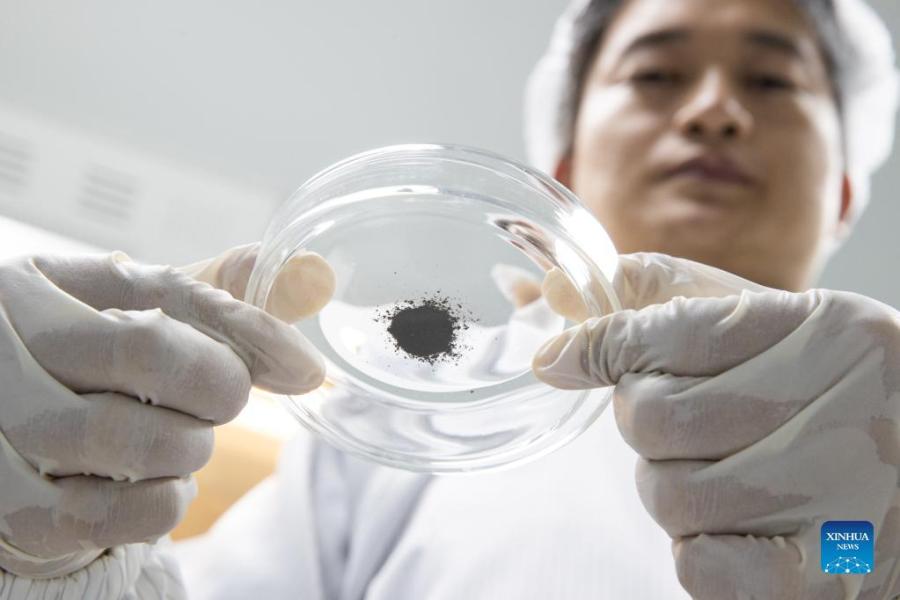
Tian Hengci, an associate research fellow, deals with lunar samples at the Institute of Geology and Geophysics of the Chinese Academy of Sciences in Beijing, capital of China, Oct. 15, 2021.
Chinese researchers have studied the lunar samples brought back by the Chang'e-5 mission and dated the youngest rock on the Moon at around 2 billion years in age, extending the "life" of lunar volcanism 800-900 million years longer than previously known.
The study, conducted mainly by a research team at the Institute of Geology and Geophysics (IGG), Chinese Academy of Sciences (CAS), was presented in three Nature papers and published online Tuesday. (Xinhua/Jin Liwang)
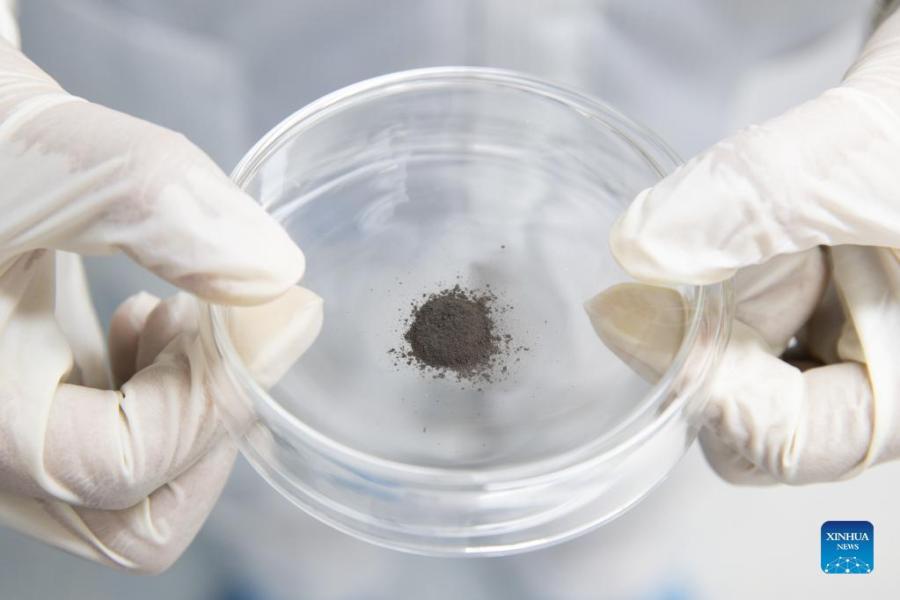
Tian Hengci, an associate research fellow, deals with lunar samples at the Institute of Geology and Geophysics of the Chinese Academy of Sciences in Beijing, capital of China, Oct. 15, 2021.
Chinese researchers have studied the lunar samples brought back by the Chang'e-5 mission and dated the youngest rock on the Moon at around 2 billion years in age, extending the "life" of lunar volcanism 800-900 million years longer than previously known.
The study, conducted mainly by a research team at the Institute of Geology and Geophysics (IGG), Chinese Academy of Sciences (CAS), was presented in three Nature papers and published online Tuesday. (Xinhua/Jin Liwang)
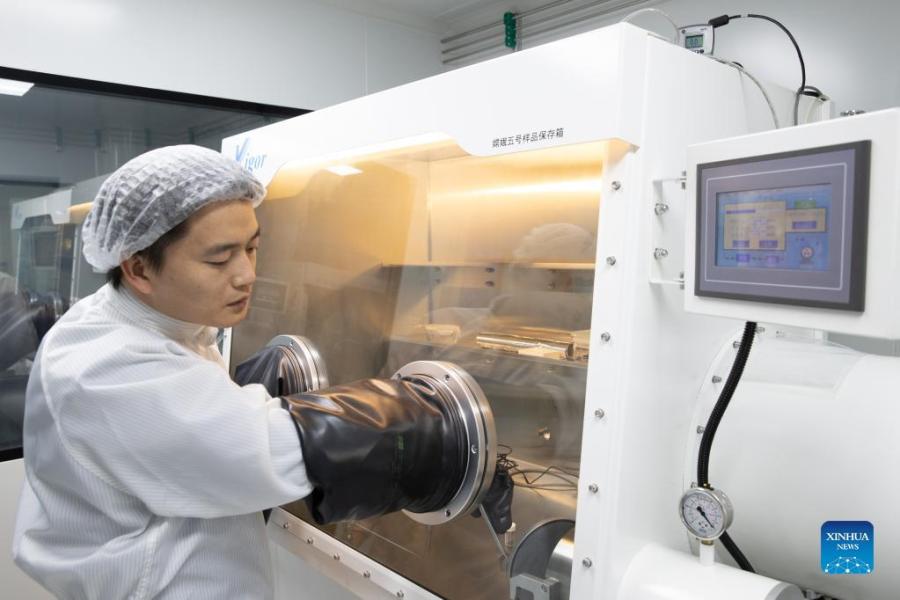
Tian Hengci, an associate research fellow, deals with lunar samples at the Institute of Geology and Geophysics of the Chinese Academy of Sciences in Beijing, capital of China, Oct. 15, 2021.
Chinese researchers have studied the lunar samples brought back by the Chang'e-5 mission and dated the youngest rock on the Moon at around 2 billion years in age, extending the "life" of lunar volcanism 800-900 million years longer than previously known.
The study, conducted mainly by a research team at the Institute of Geology and Geophysics (IGG), Chinese Academy of Sciences (CAS), was presented in three Nature papers and published online Tuesday. (Xinhua/Jin Liwang)
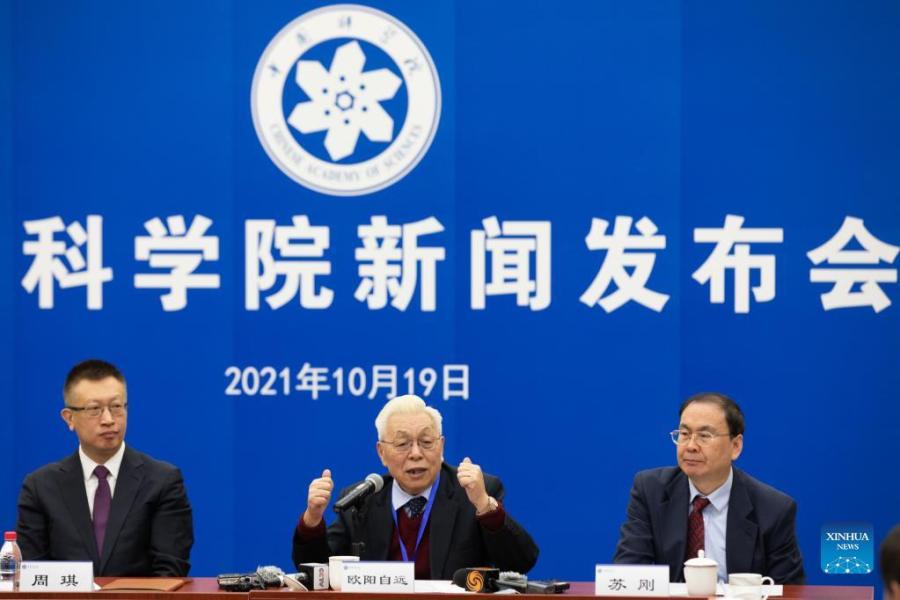
Ouyang Ziyuan (C), an academician with the Chinese Academy of Sciences (CAS), speaks during a press conference held at Institute of Geology and Geophysics of the Chinese Academy of Sciences in Beijing, capital of China, Oct. 19, 2021.
Chinese researchers have studied the lunar samples brought back by the Chang'e-5 mission and dated the youngest rock on the Moon at around 2 billion years in age, extending the "life" of lunar volcanism 800-900 million years longer than previously known.
The study, conducted mainly by a research team at the Institute of Geology and Geophysics (IGG), Chinese Academy of Sciences (CAS), was presented in three Nature papers and published online Tuesday. (Xinhua/Jin Liwang)

Photo taken on Oct. 19, 2021 shows the scene of a press conference held at Institute of Geology and Geophysics of the Chinese Academy of Sciences in Beijing, capital of China.
Chinese researchers have studied the lunar samples brought back by the Chang'e-5 mission and dated the youngest rock on the Moon at around 2 billion years in age, extending the "life" of lunar volcanism 800-900 million years longer than previously known.
The study, conducted mainly by a research team at the Institute of Geology and Geophysics (IGG), Chinese Academy of Sciences (CAS), was presented in three Nature papers and published online Tuesday. (Xinhua/Jin Liwang)
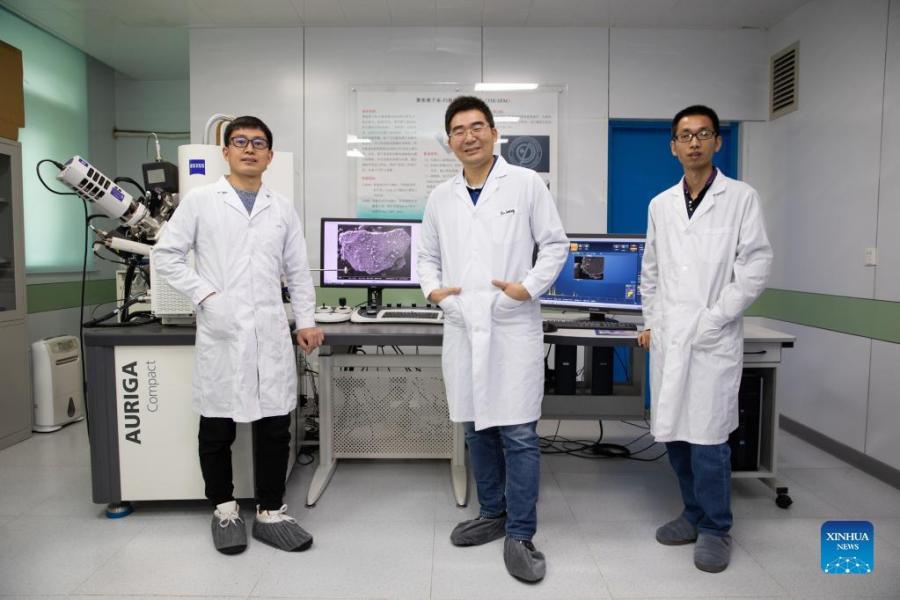
A research team of the Institute of Geology and Geophysics of the Chinese Academy of Sciences poses for a photo in Beijing, capital of China, Oct. 18, 2021.
Chinese researchers have studied the lunar samples brought back by the Chang'e-5 mission and dated the youngest rock on the Moon at around 2 billion years in age, extending the "life" of lunar volcanism 800-900 million years longer than previously known.
The study, conducted mainly by a research team at the Institute of Geology and Geophysics (IGG), Chinese Academy of Sciences (CAS), was presented in three Nature papers and published online Tuesday. (Xinhua/Jin Liwang)
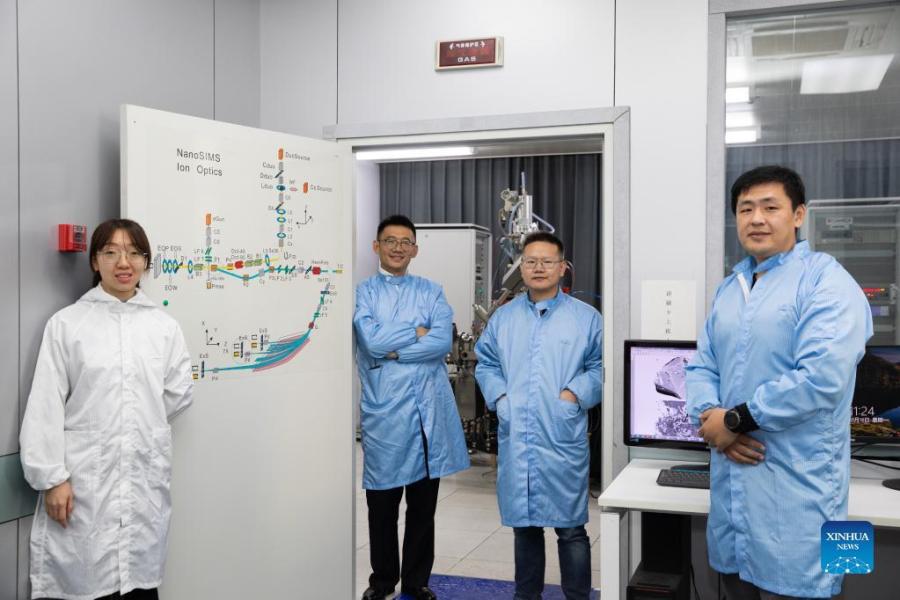
A research team of the Institute of Geology and Geophysics of the Chinese Academy of Sciences poses for a photo in Beijing, capital of China, Oct. 18, 2021.
Chinese researchers have studied the lunar samples brought back by the Chang'e-5 mission and dated the youngest rock on the Moon at around 2 billion years in age, extending the "life" of lunar volcanism 800-900 million years longer than previously known.
The study, conducted mainly by a research team at the Institute of Geology and Geophysics (IGG), Chinese Academy of Sciences (CAS), was presented in three Nature papers and published online Tuesday. (Xinhua/Jin Liwang)
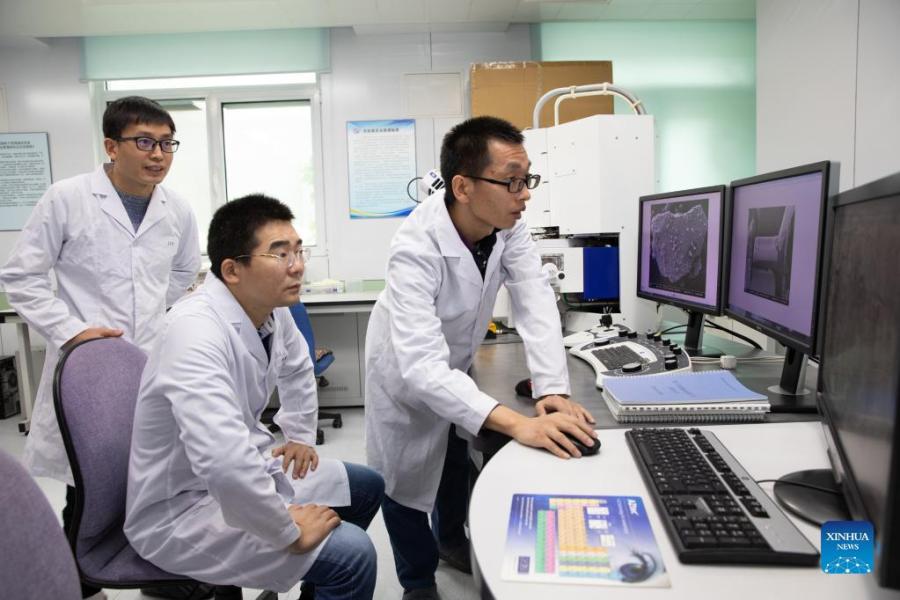
Researchers discuss experiment progress at the Institute of Geology and Geophysics of the Chinese Academy of Sciences in Beijing, capital of China, Oct. 18, 2021.
Chinese researchers have studied the lunar samples brought back by the Chang'e-5 mission and dated the youngest rock on the Moon at around 2 billion years in age, extending the "life" of lunar volcanism 800-900 million years longer than previously known.
The study, conducted mainly by a research team at the Institute of Geology and Geophysics (IGG), Chinese Academy of Sciences (CAS), was presented in three Nature papers and published online Tuesday. (Xinhua/Jin Liwang)

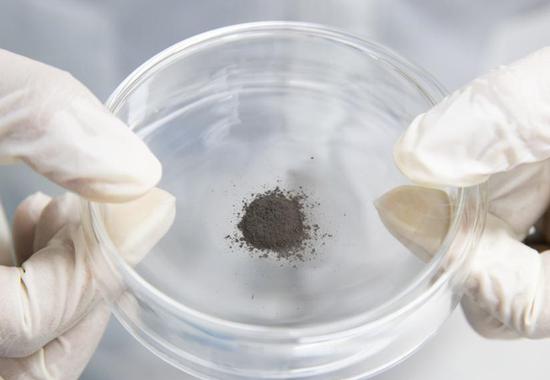
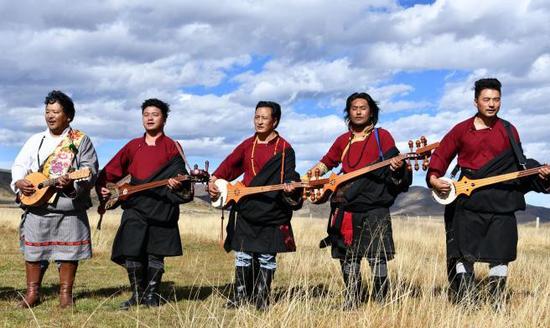


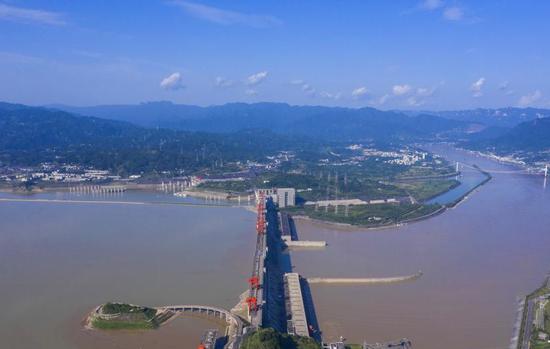
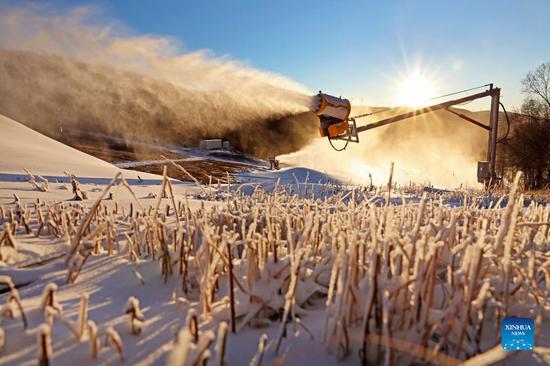























 京公網(wǎng)安備 11010202009201號] [京ICP備05004340號-1]
京公網(wǎng)安備 11010202009201號] [京ICP備05004340號-1]